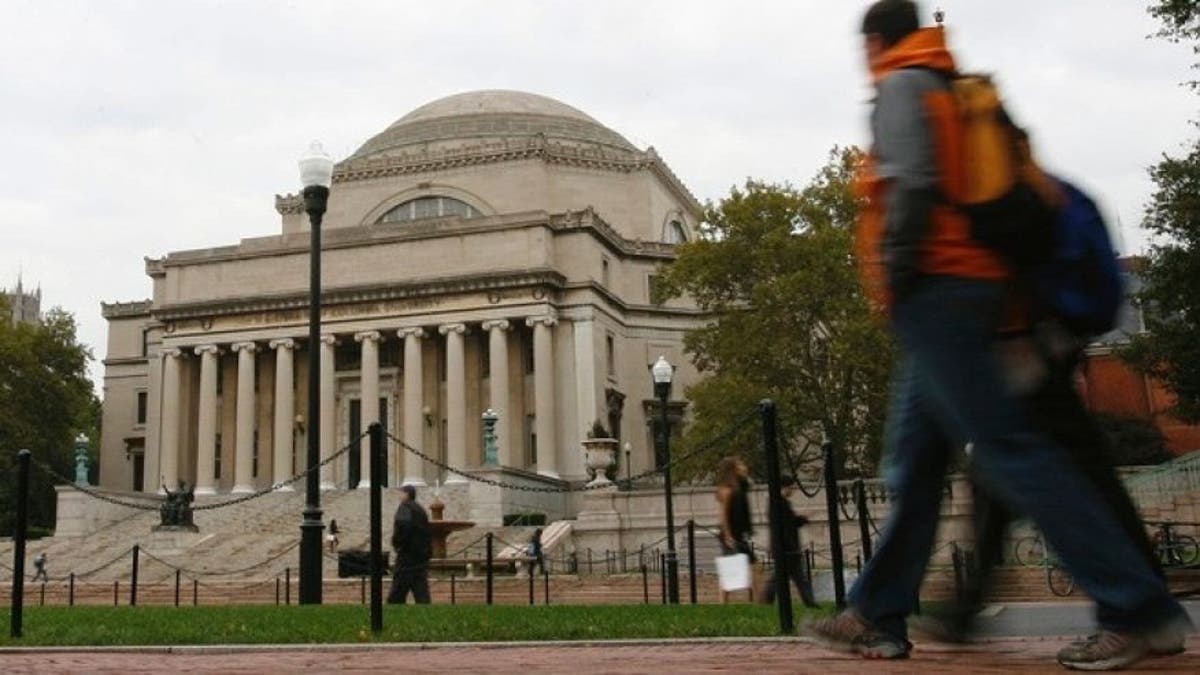
Large group of students sitting in the lecture hall at university and listening to their teacher. Focus on the professor. Dark tones. (Izabela Habur)
In late October, William V. Harris, a noted professor of Greco-Roman history at Columbia University, stepped down from his 50-year teaching career at the Ivy League school. His departure came amid accusations in a federal lawsuit that he'd groped a graduate student and pressured her for sex.
Around the same time, officials at Dartmouth College and the New Hampshire attorney general’s office announced that three tenured professors in the school's psychological and brain sciences department were targets of a criminal investigation into “sexual misconduct” charges dating back to 2002.
“The dynamic we are hearing about at large is absolutely at play in higher education.”
In the wake of numerous allegations of sexual harassment and misconduct leveled at Hollywood mogul Harvey Weinstein and a multitude of other news and media personalities, academics from Boston to Berkeley have come under increasing scrutiny for their own dalliances and inappropriate behavior toward students and underlings.
“The dynamic we are hearing about at large is absolutely at play in higher education,” Anne Hedgepeth, vice president of public policy and government relations at the American Association of University Women (AAUW), told Fox News. With power over grad students and assistants, she said, professors "are the gateway to many people’s futures.”
It's hard to pin down precisely how prevalent sexual harassment and assault by academics is, given that many victims have not reported the crimes for fear of being shamed or professionally ostracized. Nonetheless, current research suggests that sexual harassment is an open secret on campuses across the country.
A 2015 study by the Association of American Universities at 27 elite private and public research universities found that about 1 in 10 female graduate students have been sexually harassed by a faculty member. Surveying 221 reported cases at 210 institutions, a forthcoming study in the Utah Law Review found that alleged academic abusers were more often accused of physical harassment than verbal, and that 53 percent of the cases surveyed involved serial harassers.

Low Memorial Library at New York's Columbia University, where Prof. William V. Harris ended a 50-year teaching career amid sexual harassment allegations.
In late August, a complaint filed with the Equal Employment Opportunity Commission documented dozens of incidents of sexual harassment attributed to a University of Rochester professor, T. Florian Jaeger. The brain and cognitive sciences professor is accused of sleeping with graduate students, making inappropriate remarks about women in front of their colleagues and pressuring them into compromising situations. (Jaeger has denied the allegations, and internal investigations have twice cleared him of wrongdoing, according to an article this week in the Democrat & Chronicle newspaper.)
Jaeger’s case may be emblematic of how many universities have dealt with these types of issues in the past. The professor is on administrative leave and the school has a special committee currently investigating the allegations with its findings expected on January 12.
Billie Wright Dziech, the co-author of "The Lecherous Professor: Sexual Harassment on Campus," wrote in Inside Higher Ed that long-held features have made colleges increasingly susceptible to professorial misbehavior.
“As for full-time tenured faculty members, whether they are big names or not so famous, their misbehavior can go on for years, because it’s easier to view it as eccentricity or the result of personal problems rather than to invite conflict by telling colleagues or administrators what they don’t want to hear,” Dziech wrote.
She added, “Colleges and universities protect big names and moneymakers with whom they have more or less reciprocal agreements because of their worth to institutional reputation and finances.”
Along with institutional malaise, murky language about school policies on student-faculty relationships comes into play. It has made it more difficult to reach conclusions about what is or isn't sexual harassment under school rules.
Some schools – notably Ivy League institutions like Harvard and Brown – have banned sexual relationships between professors and undergrads. Other schools' guidelines are not so cut and dried.
Dartmouth’s policy states that any faculty member who uses “a position of authority to induce a student to enter into a nonconsensual romantic or sexual relationship … violates law and college policy” and adds that even consensual relationships may raise conflict-of-interest issues.
In regard to Jaeger, complainants say that he was able to exploit loopholes in the University of Rochester’s policies.
While there has been much debate about the Obama administration’s policies under Title IX – a law meant to stop gender discrimination on campus – that were aimed at curbing student-on-student sexual violence, there has been little talk about sex harassment or abuse carried out by professors.
With little oversight, this leaves schools, and more particularly, individual academic departments, to police themselves.
Some institutions have taken steps to curb sexual harassment by professors – Penn State’s psychology department faculty members met with students to discuss how to safely report harassment, while officials at the University of California, San Diego are looking into campuswide changes to their reporting procedures.
But experts say that while steps are being taken and more students are speaking out, an old, established mentality of protecting these professors and the institutions they represent remains firmly in place.
“There are incentives in place to keep people from taking action,” Hedgepeth said, “but it’s completely inappropriate and disappointing to see 45 years after Title IX was enacted.”





















